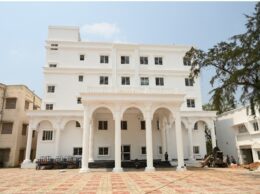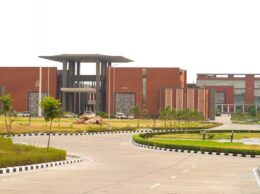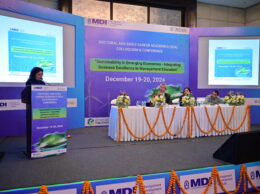Mumbai: Do you aspire to purse career in research or lectureship in higher educational institutions? Then you have to appear UGC-NET or CSIR-NET exams depending on your research subjects. On behalf of the University Grants Commission (UGC), the Central Board of Secondary Education (CBSE) conducts National Eligibility Test twice a year (June-July and December-January) on social sciences and humanity group subjects (84 subjects in UGC-NET Jan 2016). The Council of Scientific & Industrial Research (CSIR), jointly with the UGC, conducts NET in five core science subjects. This test is popularly known as CSIR UGC – NET., which is also being held twice a year.
These two pan India exams are conducted for determining the eligibility of the Indian National candidates for the award of Junior Research Fellowships (JRF) NET and for determining eligibility for appointment of Lecturers (NET) in various subject areas (specified in these two exams). CSIR-UGC NET exams are conducted on the following five subjects: Chemical Sciences; Earth, Atmospheric, Ocean and Planetary Sciences; Life Sciences; Mathematical Sciences; and Physical Sciences. Here, SkillOutlook presents key features of CSIR-NET.
Difference with UGC-NET: Primarily NET conducted by CSIR has differences with UGC NET in two areas: Subjects and Pattern of exam. UGC NET exam is based on all subjects of social sciences, humanities group subjects and others while CSIR-NET is bases in core science subjects. The NET conducted by CSIR has single paper having three hours. On the other hand, UGC-NET consists of three papers (One general knowledge & aptitude, two subject papers) with total 5 hours (Three papers have specified duration).
Selection procedure of CSIR–UGC NET: Two separate merit lists, one comprising the candidates qualifying for the award of Junior Research Fellowship (JRF – NET) and the second, of those candidates qualifying the Eligibility Test for Lectureship (NET), are declared on the basis of their performance in the Test. Candidates qualifying for JRF (NET), are also be eligible for Lectureship (NET) subject to fulfilling the eligibility criteria laid down by UGC. The candidates qualifying for Lectureship will be eligible for recruitment as Lecturers as well as for JRF-ship in a Scheme/Project, if otherwise suitable. However, they are not eligible for Regular JRF-NET Fellowship. Candidates qualifying for the award of JRF (NET) will receive fellowship either from CSIR or UGC as per their assignment or from the Schemes with which they may find association.
Validity period: The validity period to avail the fellowship will be 2 years from effective date of fellowship as indicated in CSIR NET certificate.
Academic Eligibility: The candidates must have M Sc or equivalent degree/ Integrated BS-MS/BS-4 years/BE/BTech/BPharma/MBBS with at least 55% marks for general and OBC-Non Creamy layer candidates and 50% for SC/ST, physically and Visually Handicapped candidates.
Age: For JRF, the maximum age is 28 years while upper age limit is relaxed up to 5 years in case of candidates belonging to SC/ST/OBC (non creamy layer)/ Physically handicapped/Visually handicapped and female applicants. For Lectureship, there is no upper age limit.
This pan India exam is very competitive. In June 2014 and December 2014 CSIR–UGC NET, 1,200 and 781 candidates qualified for the UGC-JRF and 2,793 and 2,097 candidates qualified for lectureship only. The next CSIR-UGC NET exam will be held on 18 December 2016 (Sunday). The exam will be held in 27 cities across India.









